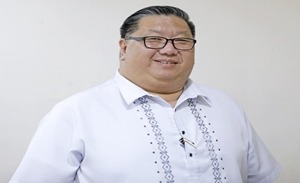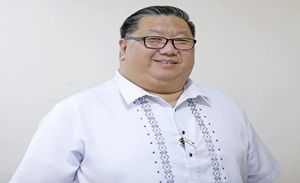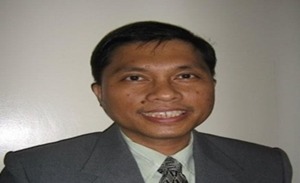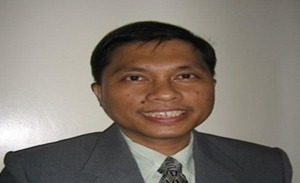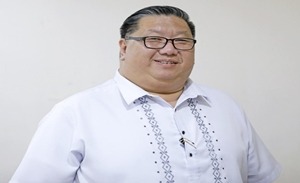FRESH VIEWPOINTS: A NEW PERSPECTIVE
By Brian James Lu
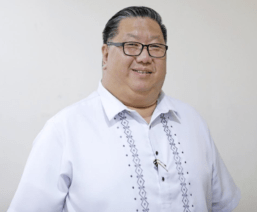
Unemployment and poverty remain two of the most pressing socio-economic challenges in the country, deeply intertwined and mutually reinforcing. While the country’s unemployment rate stood at 3.1 percent as of December 2024, a significant portion of the workforce remains underemployed or engaged in low-paying jobs that fail to provide a decent standard of living. This contributes to high poverty levels, with 63 percent of Filipinos self-rating themselves as poor – the highest since 2003. Many workers, especially those in the informal sector, struggle with job insecurity, lack of benefits, and stagnant wages, making it difficult to break the cycle of poverty.
The role of the government and the business sector in generating employment is crucial in addressing joblessness and poverty. The government plays a key role in crafting policies that promote job creation, providing training programs, and ensuring labor rights are upheld. It also facilitates infrastructure development, which attracts investments and generates employment. Meanwhile, the business sector drives economic activity by creating job opportunities, fostering innovation, and expanding industries. By working together, the government and businesses can develop a more resilient labor market, ensuring that employment opportunities are sustainable and inclusive, ultimately contributing to national economic growth and social stability.
I laud President Ferdinand R. Marcos Jr. for launching the Trabaho sa Bagong Pilipinas program, where he urges Filipinos to seize the opportunities it offers. This nationwide initiative aims to provide sustainable employment and livelihood assistance, particularly targeting beneficiaries of the Pantawid Pamilyang Pilipino Program (4Ps).
The government’s proactive employment initiatives encourage the labor force to actively seek and secure job opportunities. By implementing job fairs, skills training, and livelihood programs, the government empowers individuals to take the initiative in finding sustainable employment, ultimately improving their quality of life and strengthening the nation’s workforce.
During the program’s launch in January this year, President Marcos highlighted its initial success, noting that more than 9,000 individuals applied for various positions, with more than 1,000 applicants hired on the spot. He emphasized the importance of such initiatives in empowering Filipinos to lead productive lives and called for the expansion of similar programs across the nation.
“Kailangan lang ng pagkakataon katulad ng job fair na ito. Kaya naman gagawin ko po lahat para itong programa na ito ay magkalat sa buong bansa (We need opportunities like this job fair. I will do everything to make sure that this program is implemented across the country),” the President stated.
The Trabaho sa Bagong Pilipinas program focuses on providing employment opportunities, livelihood assistance, and essential support services to uplift the socio-economic status of Filipinos.
These efforts are part of a broader strategy to address unemployment, which is intrinsically linked to poverty alleviation. By facilitating job creation and providing skills training, the government aims to reduce the number of Filipinos living below the poverty line.
Employment plays a crucial role in both individual and societal well-being. Economically, a robust labor market contributes to increased productivity, higher consumer spending, and overall economic growth. Socially, employment fosters stability, reduces crime rates, and promotes cohesive communities.
On a personal level, meaningful work provides individuals with a sense of purpose and structure. It allows for personal development, the acquisition of new skills, and the opportunity to contribute to society. Moreover, workplaces often serve as communities where social interactions enhance interpersonal skills and build networks.
Engaging in meaningful employment offers more than just financial rewards; it imbues individuals with a sense of identity and purpose. Regular work routines provide structure, helping individuals organize their lives and set goals. The challenges encountered in the workplace encourage problem-solving and resilience, fostering personal growth.
Furthermore, the social aspect of work cannot be understated. Collaborating with colleagues, participating in team projects, and contributing to communal goals help develop communication skills and a sense of belonging. These interactions are vital for mental health and overall life satisfaction.
As part of the business sector, I have witnessed firsthand how employed individuals harness their capacities not only as skilled professionals but also as integral members of a cohesive and collaborative workforce. Their ability to work collectively fosters a dynamic environment where teamwork and synergy drive efficiency and innovation. Beyond their functional roles, employees bring intrinsic skills and knowledge that significantly contribute to the overall growth and development of the business. This seamless integration of individual expertise with organizational objectives forges an indubitable partnership between their capabilities and the company’s goals, ensuring that both the employees and the business thrive in a mutually beneficial relationship.
The “Trabaho sa Bagong Pilipinas” program represents a significant step toward addressing unemployment and poverty in the Philippines. The business sector is confident that the current administration can generate more employment opportunities, which is beneficial for the economy. By providing accessible employment opportunities and support services, the government can uplift the socio-economic status of its citizens. For such initiatives to be truly effective, it is imperative that the jobs created are sustainable and offer fair compensation. As President Marcos emphasized, the success of this program hinges on the active participation of Filipinos nationwide, seizing the opportunities presented to build a more prosperous and equitable society.

